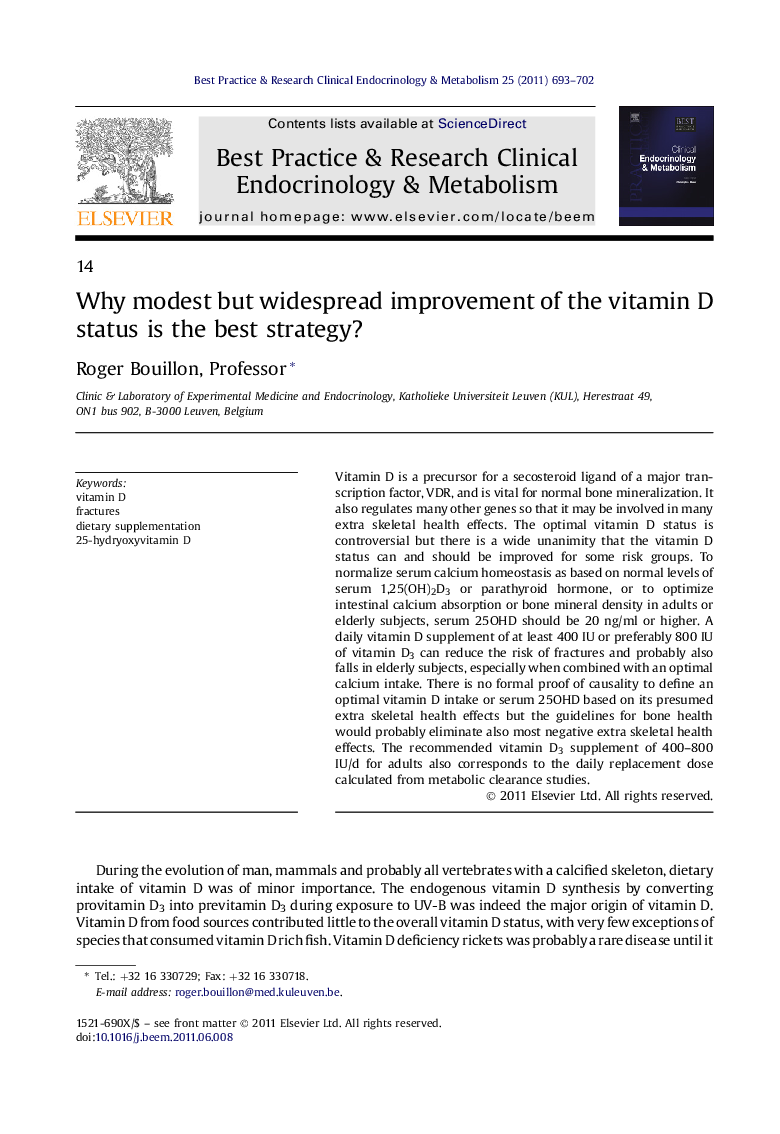| Article ID | Journal | Published Year | Pages | File Type |
|---|---|---|---|---|
| 2791975 | Best Practice & Research Clinical Endocrinology & Metabolism | 2011 | 10 Pages |
Abstract
Vitamin D is a precursor for a secosteroid ligand of a major transcription factor, VDR, and is vital for normal bone mineralization. It also regulates many other genes so that it may be involved in many extra skeletal health effects. The optimal vitamin D status is controversial but there is a wide unanimity that the vitamin D status can and should be improved for some risk groups. To normalize serum calcium homeostasis as based on normal levels of serum 1,25(OH)2D3 or parathyroid hormone, or to optimize intestinal calcium absorption or bone mineral density in adults or elderly subjects, serum 25OHD should be 20 ng/ml or higher. A daily vitamin D supplement of at least 400 IU or preferably 800 IU of vitamin D3 can reduce the risk of fractures and probably also falls in elderly subjects, especially when combined with an optimal calcium intake. There is no formal proof of causality to define an optimal vitamin D intake or serum 25OHD based on its presumed extra skeletal health effects but the guidelines for bone health would probably eliminate also most negative extra skeletal health effects. The recommended vitamin D3 supplement of 400-800 IU/d for adults also corresponds to the daily replacement dose calculated from metabolic clearance studies.
Related Topics
Life Sciences
Biochemistry, Genetics and Molecular Biology
Endocrinology
Authors
Roger (Professor),
